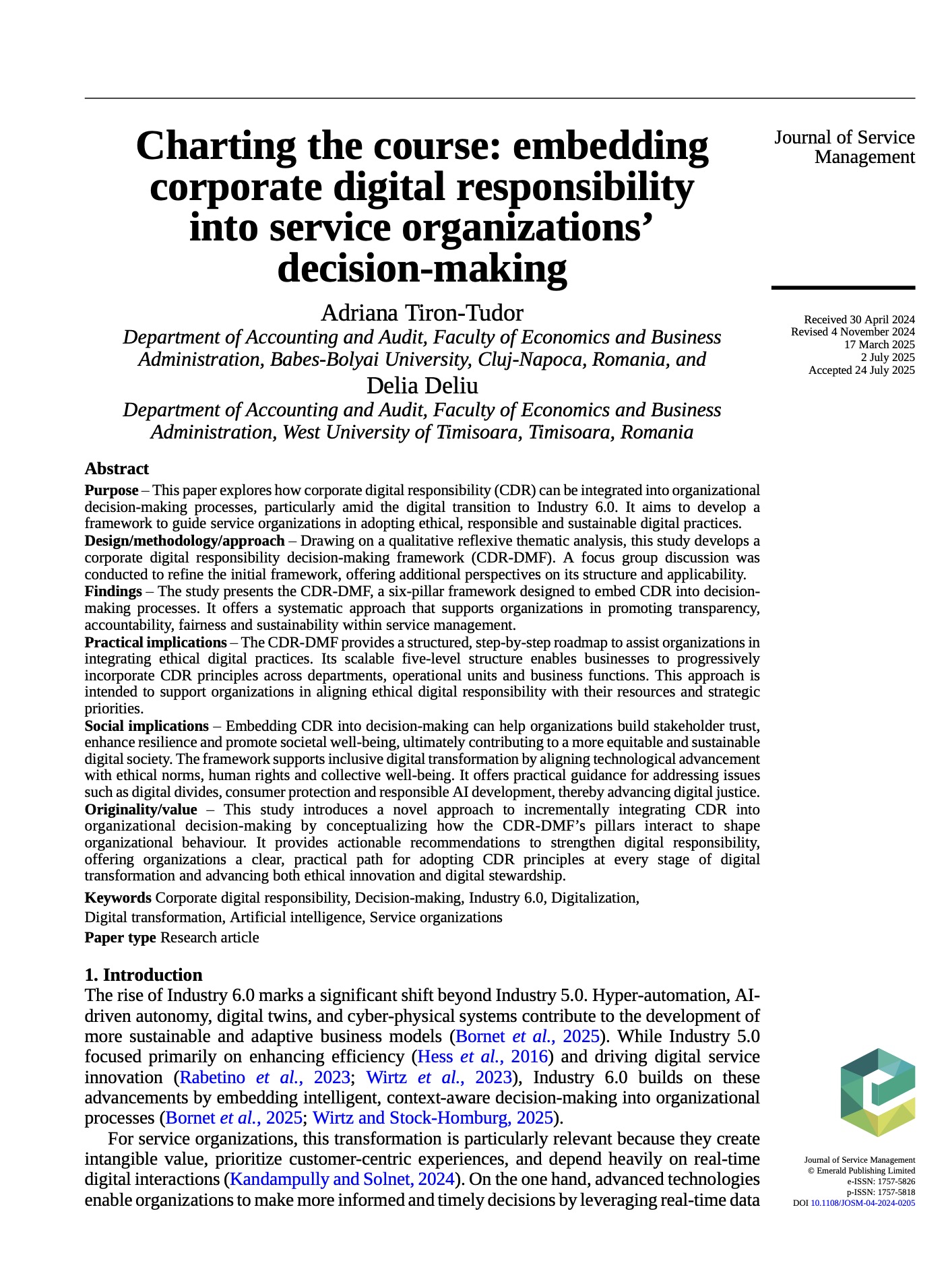|
|
|
Tiron-Tudor, A. & Deliu, D. (In press) Journal of Service Management [Core Economics, Q1]
Autor:
Cristina Alexandrina Stefanescu
Publicat:
04 Septembrie 2025
Tiron-Tudor, A. & Deliu, D. (In press) Charting the course: embedding corporate digital responsibility into service organizations’ decision-making. Journal of Service Management.
DOI: https://doi.org/10.1108/JOSM-04-2024-0205
✓ Publisher: Emerald
✓ Categories: Management
✓ Article Influence Score (AIS): 2.173 (2024) / Q1
Abstract: This paper explores how corporate digital responsibility (CDR) can be integrated into organizational decision-making processes, particularly amid the digital transition to Industry 6.0. It aims to develop a framework to guide service organizations in adopting ethical, responsible and sustainable digital practices. Drawing on a qualitative reflexive thematic analysis, this study develops a corporate digital responsibility decision-making framework (CDR-DMF). A focus group discussion was conducted to refine the initial framework, offering additional perspectives on its structure and applicability. The study presents the CDR-DMF, a six-pillar framework designed to embed CDR into decision-making processes. It offers a systematic approach that supports organizations in promoting transparency, accountability, fairness and sustainability within service management. The CDR-DMF provides a structured, step-by-step roadmap to assist organizations in integrating ethical digital practices. Its scalable five-level structure enables businesses to progressively incorporate CDR principles across departments, operational units and business functions. This approach is intended to support organizations in aligning ethical digital responsibility with their resources and strategic priorities. embedding CDR into decision-making can help organizations build stakeholder trust, enhance resilience and promote societal well-being, ultimately contributing to a more equitable and sustainable digital society. The framework supports inclusive digital transformation by aligning technological advancement with ethical norms, human rights and collective well-being. It offers practical guidance for addressing issues such as digital divides, consumer protection and responsible AI development, thereby advancing digital justice. This study introduces a novel approach to incrementally integrating CDR into organizational decision-making by conceptualizing how the CDR-DMF's pillars interact to shape organizational behaviour. It provides actionable recommendations to strengthen digital responsibility, offering organizations a clear, practical path for adopting CDR principles at every stage of digital transformation and advancing both ethical innovation and digital stewardship.

inapoi la stiri  vezi evenimentele
vezi evenimentele  home
home 
|